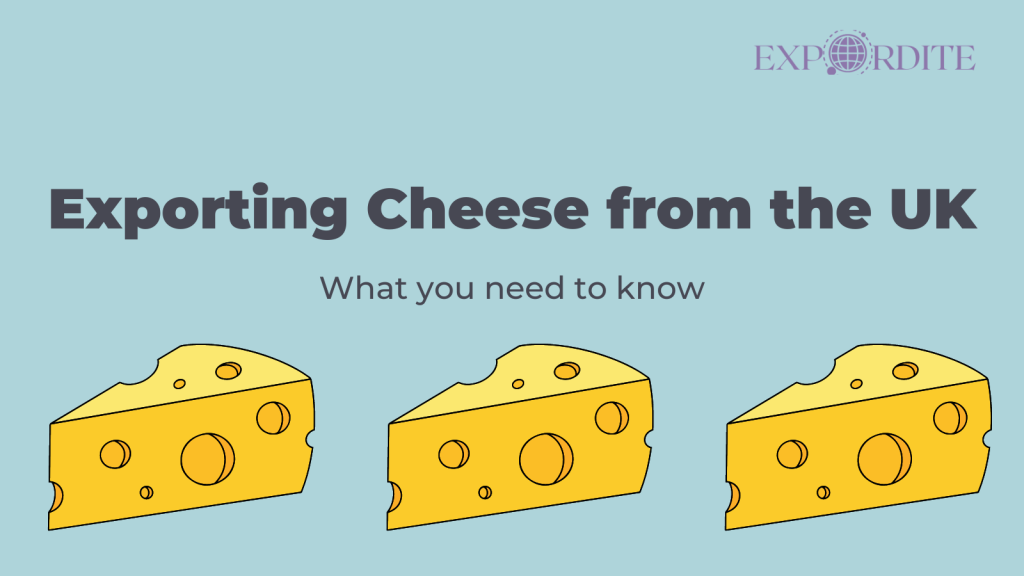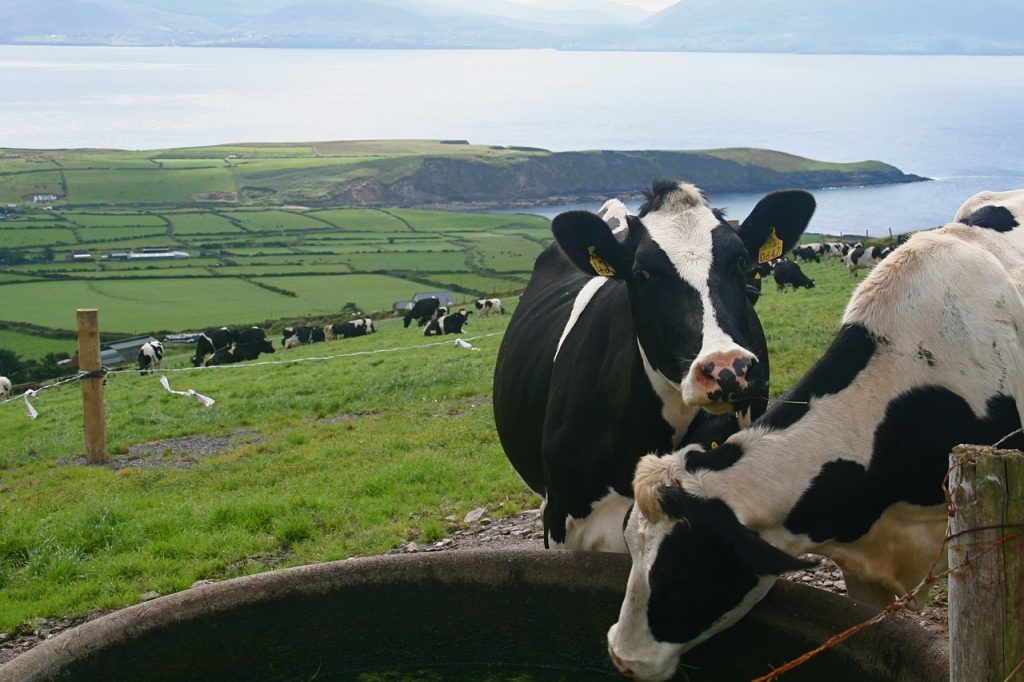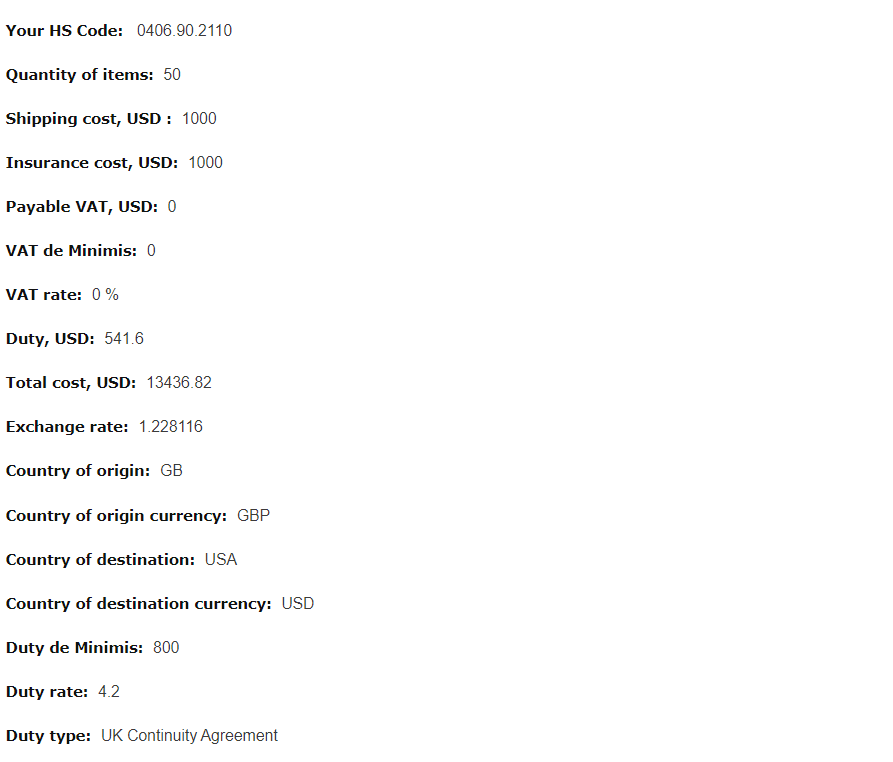Exporting Cheese from the UK? Here’s What You Need to Know

British cheeses like Cheddar are popular around the world. In fact, they’re one of the few products that actually increased their exports for some markets, post-Brexit. So, there’s a huge opportunity for UK cheese exporters to make the most of international markets.
In this guide, we’ve provided the top 3 statistics on the UK cheese export market, and explained what steps you need to take to make sure your cheese exports are successful and compliant.
UK Cheese Exports – Statistics & Facts
1. As of Q3 2022, UK can export Hafod Welsh Organic Cheddar Cheese to Australia.
A most enjoyable, inspiring and tasty visit from the farming-cheesemaking Kehler brothers of Jasper Hill, Vermont. pic.twitter.com/WxBQY1AyUw
— Hafod Cheese (@HafodCheese) May 26, 2018
The deal covers the famous Welsh cheddar and 11 other types of raw milk cheeses, which can now be exported to Australia.
But if your cheese is not on the list, you can also apply for a special export health certificate (EHC) to get clearance for exporting your cheese down under.
2. As of November 2022, Ireland was the biggest importer of UK cheese.

In total, the UK exported £17.5 million worth of cheese to Ireland. France and the Netherlands were in second and third place, with £10.9 million and £8.57 million, respectively.
3. UK’s largest independent cheese producer is exporting to 160 countries.
Read how we worked with @BarclaysUK to put in place a £30 million General Export Facility for @wykefarms to continue its expansion into new markets worldwide 👇https://t.co/1S6QKfsxfT
— UK Export Finance (@UKEF) November 17, 2022
Somerset-based Wyke Farms has recently received support from UK Export Finance to grow their stock of Cheddar, required thanks to its large-scale global expansion. Around 35% of the company’s product is sold abroad each year, amounting to almost 6 thousand tonnes.
There are plenty of other examples of UK cheese companies successfully making the most of selling internationally. But for many, it’s also a daunting process, especially given the Brexit changes.
How to Export Cheddar

So, where do you start with exporting cheeses, such as cheddar?
First, you need to make sure that you have the right commodity code, or HS code, for your product. Here’s how.
Cheddar Cheese Exports – Getting the Right HS Code
How to Classify Dairy Products as Cheese
Here’s the description of what products amount to cheese under customs regulations:
Products obtained by the concentration of whey and with the addition of milk or milkfat are to be classified as cheese provided that they have the three following characteristics:
- a milkfat content, by weight of the dry matter, of 5 % or more;
- a dry matter content, by weight, of at least 70 % but not exceeding 85 %; and
- they are moulded or capable of being moulded.
So, if your dairy product falls under these three characteristics, your product is Cheese, for the purposes of customs law! 🧀
How to Get the Right Commodity Code for Cheddar Cheese
You can use the Expordite software to get the right commodity code for your cheddar cheese. There are three HS codes applicable to cheddar:
- 0406902110 – Made from unpasteurized milk, of a minimum fat content of 50% by weight, in the dry matter, matured for at least nine months, of a free-at-frontier value per 100 kg net weight of 334,20 Euro or more in the case of standard whole sizes (cheeses of the conventional flat cylindrical shape of a net weight of not less than 33 kg but not more than 44 kg; cubic block shape or parallelepiped shape, of a net weight of 10 kg or more), 354,83 Euro or more in the case of cheeses of a net weight of 500 g or more, and 368,58 Euro or more in the case of cheeses of a net weight of less than 500 g;
- 0406902120– Whole cheeses (of the conventional flat cylindrical shape of a net weight of not less than 33 kg but not more than 44 kg and cheeses in cubic blocks or in parallelepiped shape, of a net weight of 10 kg or more) of a minimum fat content of 50% by weight, in the dry matter, matured for at least three months;
- 0406902190– Other
So, the HS code for your cheddar cheese will depend on the above characteristics. For the purposes of this exercise, let’s take a look at code 0406902110, with 50 quantities of it exported from the UK to USA.
Applicable Customs Duties and Taxes
We used the Expordite software customs duties calculation tool to calculate the customs duties and taxes applicable to a UK export of 50 quantities of cheddar under the HS code 0406902110, with the value of a single unit being £170, and the insurance cost and the transportation per item being $20 each. Here’s what we got:

As you can see, the total cost of exporting 50 units of cheddar cheese from the UK to the USA will amount to $13,436.82, provided that the insurance and transport costs are $1,000 each in total. There’s no payable VAT, but there is a duty of 4.2% payable for goods valued over $800 (duty de minimis). There are no rules of origin preferences at the moment in force with the US.
It’s worth keeping these figures in mind when issuing a quotation to your American customers. If you want to sell at a lower cost to attract more buyers, consider using Incoterms where you as the seller have less responsibility (e.g. ExWorks).
Applicable UK Export Measures
We used the Expordite® software to look up the export measures for this HS code, applicable in the UK. These measures, where applicable, must be specified via CDS code in your export declaration. The list of posesible measures that could apply to this export, depending on the exporter’s circumstances is below. When one or more of these measures is met, export is allowed.
- Certificate of Inspection for Organic Products as referred to in Article 33(1)(d) of Regulation (EC) No 834/2007 as retained in UK law. Applies where the goods are organic under the cited law.
- Particular provisions: Goods not covered by Regulation (EC) No 834/2007 (e.g. non organic goods) as retained in UK Law. Applies where the exported goods are not concerned by Regulation (EC) No 834/2007 (organic products) Council Regulation (EC) No 834/2007 on organic production and labelling of organic products. Sufficient evidence must be held in records to demonstrate eligibility for this waiver which must be produced on demand.
- National Document: CDS universal waiver. Applies where the goods do not require the certificate or licence shown.
- National Document: Goods originating specifically in the non-government controlled areas of Donetsk and Luhansk oblasts if related to an obligation arising from a contract concluded before 23 February 2022 subject to these contracts, or ancillary contracts necessary for their execution, being concluded by 24 August 2022, and the Secretary of State for the Department for International Trade being informed at least ten working days in advance of the import. Applies where the goods originate in specified territories where the contract was concluded before 23.02.2022 (Contractual exemption)
- National Document: Goods originating in non-government controlled Ukrainian territory with a certificate of origin issued by the Ukrainian authorities. Applies where the goods originate in specified territories when covered by a certificate of origin issued by the Ukrainian authorities and entitled to an exemption from the prohibition on the import of goods originating in the non-government controlled areas of Ukraine. Sufficient evidence must be held in records to demonstrate eligibility for this exemption, which must be produced on demand.
- National Document: Goods exported from an area of Ukraine under the control of the Ukrainian government. Applies where the goods were exported from an area of Ukraine which was under the control of the Ukrainian government at the time of export. Sufficient evidence must be held in records to demonstrate eligibility for this waiver which must be produced on demand.
Note, however, that these measures are UK export measures ONLY!
You’ll need to check the measures imposed by other countries on UK exports, in addition to these, to make sure that your exports are compliant not only with the UK export regulations, but also with other countries’ import regulations.
Want to get more insights on exports & international trade? Sign up for our updates!








1 Response